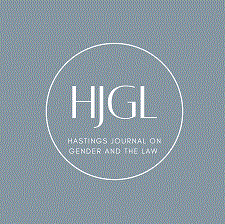
Abstract
In this Note, the author discusses how California's community property system has undergone a transformation driven by statutory changes, including the enactment of a statute of frauds for transactions between partners and the imposition of heightened fiduciary duties between partners, as well as judicial interpretation of these statutory changes. The author argues that, as a result of these changes, divorcing partners now have greater opportunity to influence the outcome of the court's division of the community property by appearing as sympathetic as possible on the witness stand. As a solution, the author proposes that California's Legislature and judiciary should change the way that parties in dissolution proceedings are allowed to raise and rebut the presumption of undue influence, first by redefining "any unfair advantage" from section 721 (b) as an advantage to one partner that disadvantages or damages the community estate, which will bring the statute in line with the purpose of a community property system, and second by clarifying whether the writing requirement under section 852(a) operates as a statute of frauds, with traditional contracts law exceptions. This Note also gives some recommendations for attorneys and partners contemplating transmutation, which will be helpful in the absence of legislative or judicial action.
Recommended Citation
Sara Craig,
Transmutations and the Presumption of Undue Influence: A Quagmire in Divorce Court,
25 Hastings Women's L.J. 81
(2014).
Available at: https://repository.uclawsf.edu/hwlj/vol25/iss1/6


